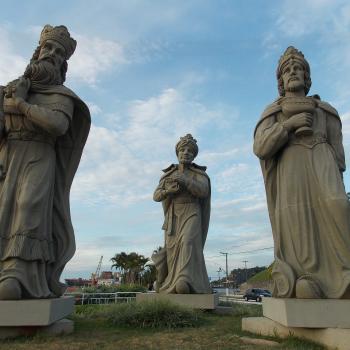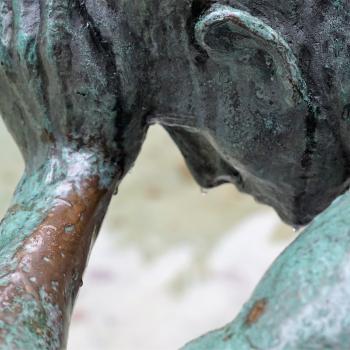
Whenever I teach a survey of Church history, I include at the very beginning some comments about the extraordinary growth rate of the Christian community in the first century. Some historians suggest that in less than three centuries after Christ, more than 10% of the Roman Empire’s population was Christian. Scholars attribute this rapid spread to a wide variety of factors, but one of the most pivotal was the Church’s treatment of women.
When I’ve addressed this issue, I often get blank stares. We live in such a rights-based society that it’s hard to understand how radical and liberating the gospel was in the first century, particularly for women. We have been told that the early Church was oppressive, and Paul especially was an ogre to women. But the story is quite the opposite. To be a Christian woman was to enter a community that valued her both for her own sake and for Christ’s sake. Women were granted leadership roles in the community; they were listened to as prophetic voices; they were theologically valuable.
Even better, if a woman had a Christian husband, she was morally protected, honored in the home, esteemed. Her children were cared for, and family members were sheltered. I’m not being ridiculous here and painting a rosy picture of Christian marriage devoid of conflict. Nor was it a toggle-switch development. But the Christian community strove to emulate Our Lord’s treatment of women, an absolutely astonishing reversal of his contemporaries’ attitudes. One ancient Jewish prayer – for men – thanked God that He had made them neither Gentiles, nor slaves, nor women.
In the gospels, however, we see women as pivotal, absolute imperatives in the salvation story – first disciple (the Virgin Mary) and first apostle (Mary Magdalene); first believing Samaritan (Jn. 4), first (in John’s gospel) to recognize Jesus as “the Christ, the Son of God” (Martha); one of the first to impress Jesus with bald faith (Mt. 15.28). The gospels are not men’s stories about men, but God’s stories about a kingdom in which neither maleness nor femaleness defines value.
Dorothy Sayers, in her book Are Women Human? puts it this way:
[Women] had never known a man like this Man – there never has been such another. A prophet and teacher who never nagged at them, never flattered or coaxed or patronised; who never made arch jokes about them, never threatened them either as “The women, God help us!” or “The ladies, God bless them!”; who rebuked without querulousness and praised without condescension; who took their questions seriously; who never mapped out their sphere for them, never urged them to be feminine or jeered at them for being female; who had no axe to grind and no uneasy male dignity to defend; who took them as he found them and was completely unselfconscious.
Sometimes we Americans seem to think that that problem has been settled with such things as our Bill of Rights and feminist demands. Women vote, they make lots of money, they have powerful political positions, they choose whom they will marry, they get educations, etc. And so the Church thinks the “woman problem” is ancient history and we forget.
Here’s one way we forget: Kermit Gosnell, abortion doctor monster, has come and gone in the news, overshadowed by Tunisian and Egyptian revolutions. Elizabeth Scalia, in her Anchoress blog, points out the miasma overshadowing the Gosnell story in the media. We meekly accept the news slant that tells us this is a lamentable anomaly, rather than, perhaps, a ghastly glimpse into some realities of the abortion dilemma.
I guess I’m not a true feminist, whatever that means . . . though my husband sniggers when he hears me contend that I’m really quite docile. But I think with awe of the early Christian men and women, my ancestors in faith, who changed the world, in part by cherishing women. The Church launched the culture in which women would rise to become equal partners in shaping the world. As De Tocqueville, the 19th-century French political historian wrote, in observing the nascent United States:
I have no hesitation in saying that although the American woman never leaves her domestic sphere and is in some respects very dependent within it, nowhere does she enjoy a higher station. And if anyone asks me what I think the chief cause of the extraordinary prosperity and growing power of this nation, I should answer that it is due to the superiority of their women. (Democracy in America, Volume II, Book Three, Chapter XII, 1840)
When we talk about Christian witness, it’s easy to talk apologetics, evangelism, preaching, church growth, and even social activism. But maybe the early Church offers a simple clue: How well do we care for women and their children?












